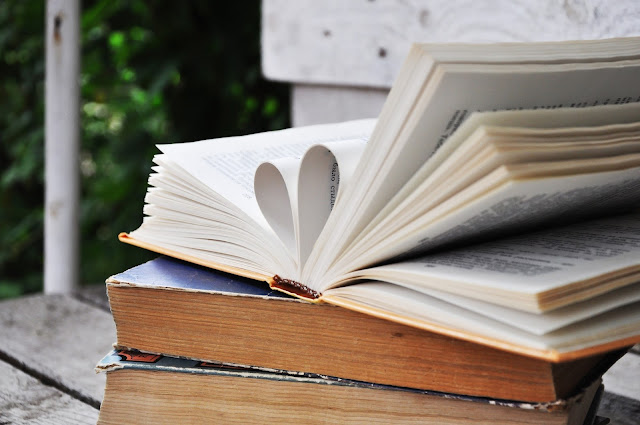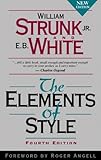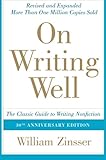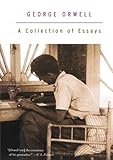
If you’re trying to develop your writing skills, there’s one tip you’ll keep getting: read more. There’s a tight connection between reading and writing. When it comes to essay writing, the reading part is even more important.
Most people tell you it’s all about the practice. You tried that, and it didn’t work. You still ended up looking for help on essay writing by ScholarAdvisor? That’s because you skipped the reading part. You practice without knowing what superb essay writing was supposed to look like.
First of all, you have to read actual essays. There are brilliant essayists that show you how this genre gives you more than enough space to express your creativity, wit, and arguments. You can also find great books with guidelines on essay writing.
Wait, you have to spend time searching for the right books? Absolutely not! We did the search for you. All you need to do is make your picks from this list and start reading the best books for essay writing. You’ll be happy to know that some of them are available as free eBooks.
Levels of the Game

(By: John McPhee )
Creative nonfiction – that may sound like a paradox, but this essayist shows you how it’s done. He creates factually accurate narratives through creative techniques and literary styles. Levels of the Game is a stylistic masterpiece.
The author describes a tennis match between Arthur Ashe and Clark Graebner. You think that’s a boring topic for an essay? Think again! On the surface, this is just a description of the game. When you dig deeper, it’s a complex analysis of human behavior. McPhee shows you that essay writing is less about the topic and more about the way you approach it.
The Practical Stylist with Readings and Handbook

(By: Baker )’
Your teachers already gave you the foundational tip on essay writing: form a thesis and prove it. That’s the basis of this guide. It tells you how to form and emphasize the thesis through an essay that maintains structural integrity.
The Sense of Style: The Thinking Person’s Guide to Writing in the 21st Century

(By: Steven Pinker )
Steven Pinker asks an important question: why is writing in general so bad and how can we improve it?
This book gives you more than tips on how to write well. It also tells you how not to write. When you understand what bad writing is, you’ll easily avoid the pitfalls.
The Elements of Style

(By: William Strunk Jr. and E. B. White )
“No book in shorter space, with fewer words, will help any writer more than this persistent little volume.” That’s the review this guide got in The Boston Globe. It explains exactly why this book is so good.
First of all, it’s a short book that gets straight to the point. It doesn’t waste your time with useless descriptions and narratives. What’s more important, it teaches you about the most important aspects of proper writing.
On Writing

(By: Stephen King )
Okay, this isn’t exactly an essay writing guide. It is, however, a guide to general writing. And it’s Stephen King, so it’s absolutely brilliant.
The author gives the fundamentals of the writing craft. He explains how you can turn writing into a consistent daily habit, and how you can enjoy it despite the challenges the process imposes.
“As I’ve said, we’ve all heard someone say, ‘Man, it was so great (or so horrible/strange/funny)… I just can’t describe it.’ If you want to be a successful writer, you must be able to describe it, and in a way that will cause your reader to prickle with recognition.”
On Writing Well: The Classic Guide to Writing Nonfiction

(By: William Zinsser )
Nonfiction writing is based on facts and evidence. However, it’s no good if it doesn’t involve a high level of creativity. This guide by William Zinsser teaches you how to hit the balance between creativity and boring facts.
Bird by Bird: Some Instructions on Writing and Life

(By: Anne Lamott )
The inspiration for this book came from the author’s brother. When he was ten years old, he was struggling to write a report on birds, which he’d had three months to write. Sounds familiar? Who hasn’t tried to burry the thought of an academic project by procrastinating? The author’s father gave the best advice to his son: “Bird by bird, buddy.
Just take it bird by bird.” Anne Lamott recognizes the struggle and effort that goes into an essay. The final result reveals only a small part of the effort you made. Still, the process is important, and this book shows you how to go through it: bird by bird.
A Collection of Essays

(By: George Orwell )
George Orwell was one of the most acclaimed essayists of the 20th century. When you read his essays, you believe what he says and you’re ready to adopt his arguments as your own.
That’s the exact effect you want to achieve with your own essays. The structure of literary essays is more flexible than the one of the academic essays you write for school. However, this book is still an important read for students. It teaches you about the power of impressions.
100 Ways to Improve Your Writing: Proven Professional Techniques for Writing with Style and Power

(By: Gary Provost )
The title of this guide is so descriptive that it needs no introduction. You get 100 tips on how to make your writing more powerful. It’s a universal guide that works for beginner writers, bloggers, and students. You’ll recognize the most common problems you face during the writing process, and you’ll learn how to overcome them.
Revising Prose

(By: Richard A. Lanham )
(By: ) Richard A. Lanham, a notable scholar of the history of rhetoric, wrote this timeless guide on creative readable, concise, and convincing prose. If you’re like most other people, you don’t pay too much attention to the process of revisions once you finish writing an essay.
Sure, you’ll read the content and fix an error here and there, but you’re not revising. This book shows exactly how proper revisions are made.
All books on this list have the potential to make you a better essay writer. The practice, however, is still inevitable. There’s no time to waste; pick your first book and start reading it today. Then, practice what you learn!
Laura Buckler is a freelance writer focused on blogging and essay writing. She loves exploring the usual things in her surroundings, like the way her cat sleeps. Then, she writes an essay about the detail that made her day. Follow her on twitter.